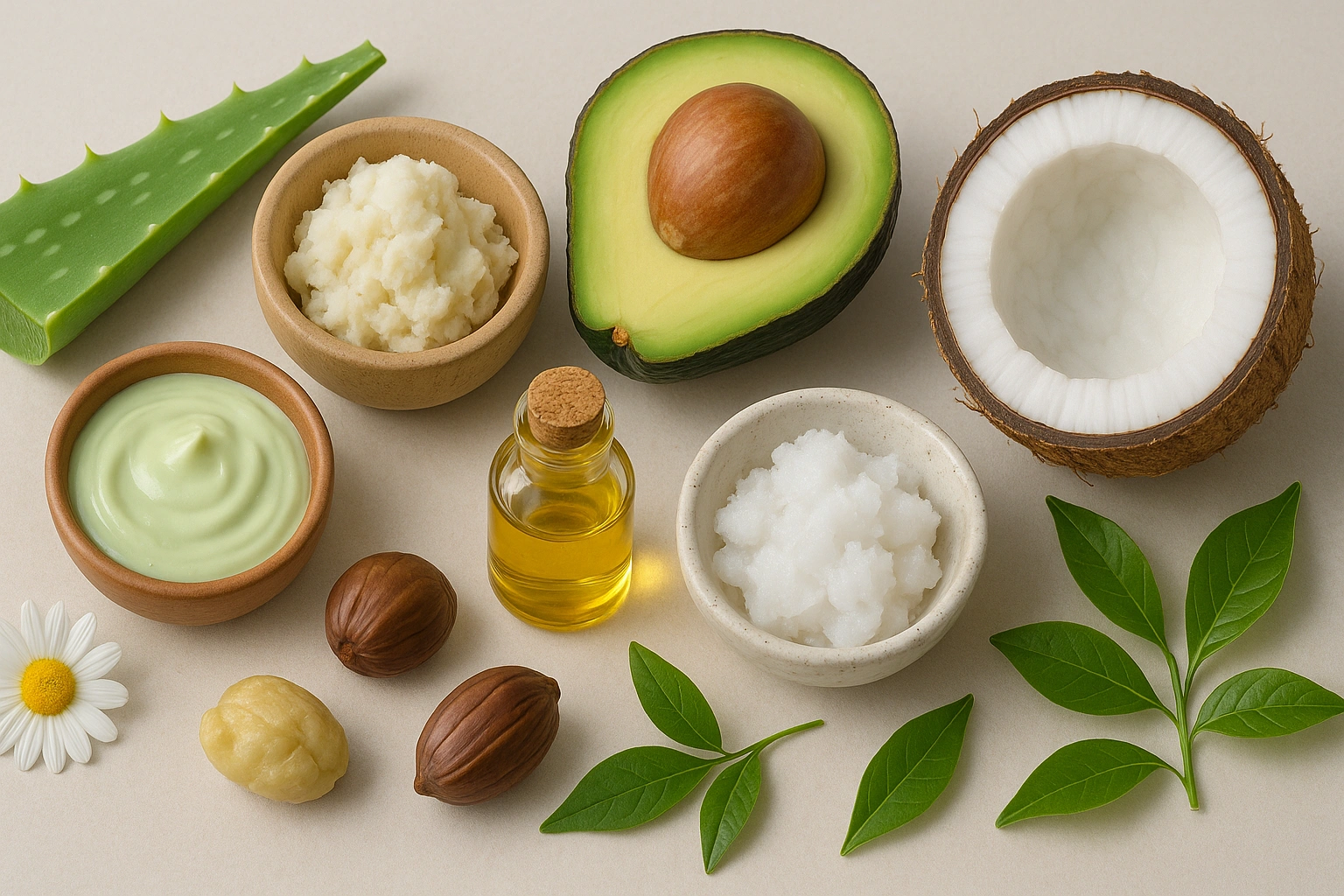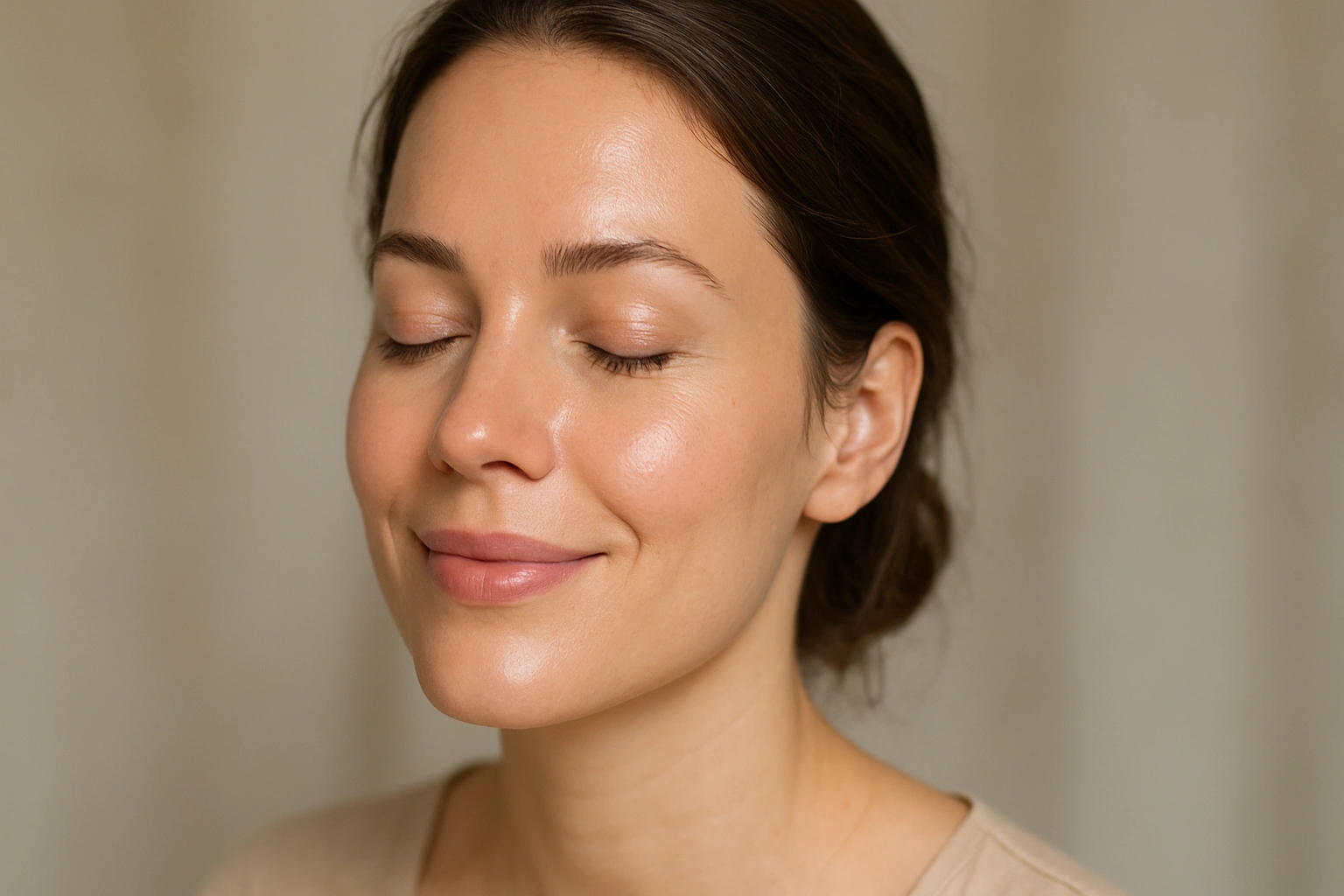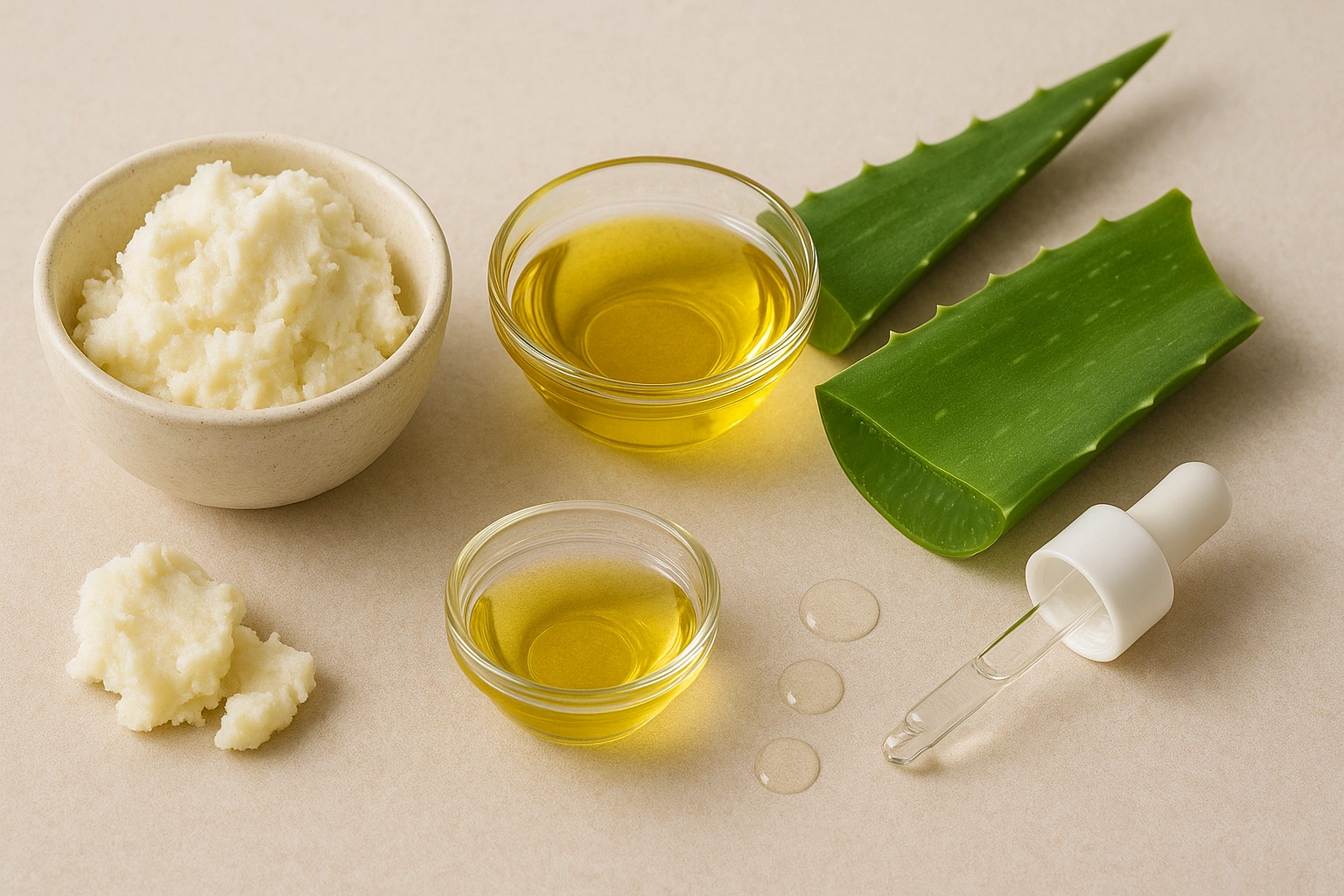Plants are an abundant source of antioxidants, vitamins, and minerals. These ingredients are crucial for protecting the skin from free radical damage, which is why many formulas for a vegan moisturizer for dry skin rely on plant-based power to keep the complexion resilient.
Does your skin ever feel tight, flaky, or just plain thirsty? You’re not alone. Battling dryness is a constant struggle for many, and reaching for a vegan moisturizer for dry skin can make all the difference when hydration feels impossible to maintain.
Finding the right product in a sea of options can feel overwhelming. Choosing a vegan moisturizer for dry skin offers a solution that is gentle, nourishing, and aligned with modern values, so you don’t have to sacrifice ethics for results.
But what if the solution was not only effective but also kind to animals and the planet? In 2025, the search for the perfect vegan moisturizer for dry skin is more relevant than ever, blending high-performance skincare with conscious consumerism.
This guide is your definitive resource for navigating the world of plant-powered hydration, with a special focus on choosing the right vegan moisturizer for dry skin that truly works.
We’ll break down everything you need to know—from decoding ingredient lists to discovering how a vegan moisturizer for dry skin can transform your routine and deliver lasting results.
You’ll also uncover top-rated products that make each vegan moisturizer for dry skin feel effortless to use while keeping your complexion soft, supple, and deeply nourished.
Get ready to say goodbye to dryness and hello to a healthy, radiant glow with the confidence that comes from finding the perfect vegan moisturizer for dry skin in 2025.
- What Exactly is a Vegan Moisturizer?
- Why Your Dry Skin Needs a Vegan Moisturizer
- Key Ingredients to Look For in an Organic Face Cream
- Top 5 Vegan Moisturizers for Dry Skin in 2025: Reviewed
- Comparison of Leading Vegan Moisturizers
- Common Mistakes to Avoid
- Expert Tips for Maximizing Hydration
- Frequently Asked Questions (FAQ)
- Conclusion: Embrace Plant-Powered Hydration
What Exactly is a Vegan Moisturizer?
In simple terms, a vegan moisturizer for dry skin is a hydrating cream or lotion formulated entirely without animal-derived ingredients.
This means no honey, beeswax, lanolin (from sheep’s wool), collagen (often from fish or cows), or carmine, making a vegan moisturizer for dry skin the safer choice for conscious consumers.
Instead, a vegan moisturizer for dry skin relies on the power of plants, utilizing potent botanicals, oils, and butters that work in harmony with the skin.
Even lab-created ingredients that are ethically sourced play an important role in a vegan moisturizer for dry skin, proving that hydration can be both effective and sustainable.
The shift towards vegan skincare isn’t just a fleeting trend; it’s a reflection of a larger movement towards sustainability and transparency. In fact, the global vegan cosmetics market is projected to reach over $25 billion by 2029, according to a report by Statista. Consumers in 2025 are more educated and demand products that align with their values without compromising on results. This has pushed brands to innovate, creating sophisticated formulas that prove plant-based ingredients are more than capable of tackling serious skin concerns like chronic dryness.

Why Your Dry Skin Needs a Vegan Moisturizer
Gentle, Plant-Powered Hydration
Vegan formulas often lean on natural humectants, emollients, and occlusives that are incredibly compatible with the skin. Ingredients like hyaluronic acid (often derived from microbial fermentation), shea butter, and jojoba oil mimic the skin’s natural lipids, helping to restore its moisture barrier without causing irritation.
Rich in Antioxidants and Vitamins
Plants are packed with protective compounds. Vegan moisturizers are often a cocktail of antioxidants (like Vitamins C and E), anti-inflammatory agents (like chamomile and green tea), and essential fatty acids. These ingredients do more than just hydrate; they protect your skin from environmental stressors like pollution and UV rays, which can exacerbate dryness and lead to premature aging.
An Ethical and Cruelty-Free Choice
By definition, vegan products are cruelty-free. This means no animal testing occurred at any stage of product development. For many consumers, this peace of mind is a non-negotiable part of their beauty routine.
Better for Sensitive Skin
Because they omit common animal-derived allergens and often avoid harsh synthetic chemicals, vegan moisturizers can be a haven for sensitive skin. They tend to be formulated with fewer potentially irritating ingredients, focusing instead on soothing botanicals that calm redness and reduce reactivity. For those looking to build a complete, conscious skincare routine, exploring these options is a great first step. You can learn more about building a holistic tech-driven wellness routine at AI Robotics.
Key Ingredients to Look For in an Organic Face Cream
- Hyaluronic Acid: A super-humectant that can hold up to 1,000 times its weight in water. It draws moisture from the air into your skin, providing a plump, dewy look.
- Shea Butter & Cocoa Butter: These rich butters are emollients, meaning they soften and smooth the skin. They are packed with fatty acids and vitamins that nourish the skin and lock in moisture.
- Squalane: Traditionally derived from sharks, squalane in vegan products comes from olives or sugarcane. It’s an incredibly lightweight, non-greasy oil that is bio-identical to our skin’s own moisture.
- Jojoba Oil: Structurally similar to our skin’s natural sebum, jojoba oil helps to balance oil production while providing deep, lasting hydration.
- Ceramides: These are lipids (fats) that are essential for a healthy skin barrier. Plant-derived ceramides help to fortify your skin’s defenses, preventing water loss.

Top 5 Vegan Moisturizers for Dry Skin in 2025: Reviewed
1. Verdant Bloom Phyto-Barrier Repair Cream
This ultra-rich cream is a lifeline for severely dry or compromised skin. It uses a potent blend of plant-derived ceramides, shea butter, and reishi mushroom to calm inflammation and rebuild the skin’s moisture barrier from within.
| Pros | Cons |
|---|---|
| Incredibly nourishing for very dry skin | Might be too heavy for daytime use |
| Reduces redness and irritation | Higher price point |
| Fragrance-free and great for sensitivity |
Best For: Nighttime repair and winter skincare.
2. Dewdrop Botanicals Cloud-Hydra Gel Cream
If you hate the feeling of heavy creams, this gel-cream is a dream come true. It’s formulated with multiple weights of hyaluronic acid and cactus water for intense, lightweight hydration that sinks in instantly.
| Pros | Cons |
|---|---|
| Lightweight, non-greasy texture | May not be rich enough for extremely dry skin |
| Plumps and smooths fine lines | Comes in a jar (less hygienic) |
| Layers beautifully under makeup |
Best For: Combination-to-dry skin types or daytime use.
Comparison of Leading Vegan Moisturizers
| Product | Key Ingredients | Texture | Price Range | Best For |
|---|---|---|---|---|
| Verdant Bloom Phyto-Barrier | Ceramides, Shea Butter, Reishi | Rich Cream | $$$$ | Night Repair, Very Dry Skin |
| Dewdrop Botanicals Cloud-Hydra | Hyaluronic Acid, Cactus Water | Gel-Cream | $$$ | Daytime, Combo-Dry Skin |
| Alpine Pure Moisture Soufflé | Squalane, Elderberry Extract | Whipped | $$$ | Dullness, Anti-Pollution |
| Bare Origin Minimalist Cream | Oat Kernel Oil, Jojoba Oil | Light Cream | $$ | Extreme Sensitivity |
| Pacifica Vegan Ceramide | Ceramides, Marshmallow Root | Cream | $ | Budget-Friendly Barrier Support |
Common Mistakes to Avoid
- Assuming “Vegan” Means “All-Natural”: Vegan products can still contain synthetic ingredients. The key is that none are derived from animals.
- Ignoring Your Skin Type: A rich cream designed for very dry skin might clog pores on someone with combination skin.
- Forgetting to Patch Test: Even with gentle ingredients, allergies are possible. Always test a new product on a small area of skin first.
- Falling for “Greenwashing”: Some brands use “vegan” as a marketing buzzword. Look for third-party certifications like Leaping Bunny.
- Not Reading the Full Ingredient List: The first five ingredients make up the bulk of the formula. Ensure hydrating components are high on the list.
Expert Tips for Maximizing Hydration
““The biggest mistake I see is applying moisturizer to bone-dry skin. For maximum absorption, apply your cream to slightly damp skin, ideally within 60 seconds of cleansing. This locks in the surface-level moisture for deeper, longer-lasting hydration.”
— Dr. Elena Foster, Board-Certified Dermatologist
- Layer Wisely: Apply products from thinnest to thickest. A hydrating serum should go on before your moisturizer.
- Don’t Forget Your Neck: The skin on your neck is thin and prone to dryness. Extend your application down to your décolleté.
- Be Consistent: Use your moisturizer every morning and night to maintain a healthy skin barrier.
- Add a Face Oil: For an extra boost, mix a few drops of a vegan face oil (like rosehip or marula) into your moisturizer at night.
Frequently Asked Questions (FAQ)
What is the difference between “vegan” and “cruelty-free” skincare?
“Cruelty-free” means the product was not tested on animals, while “vegan” means it contains no animal-derived ingredients. A product can be one without being the other, but most vegan brands are also cruelty-free.
Are vegan moisturizers less effective than traditional ones?
Not at all. Modern science has allowed for the creation of highly effective plant-based and synthetic alternatives to animal ingredients. A well-formulated vegan moisturizer for dry skin can perform just as well, if not better, than its non-vegan counterparts.
